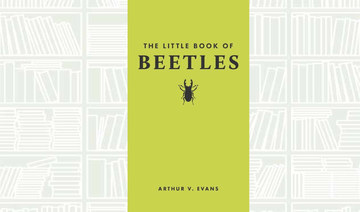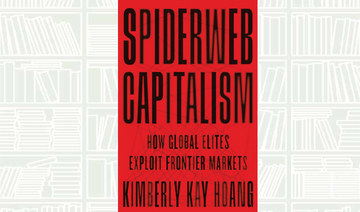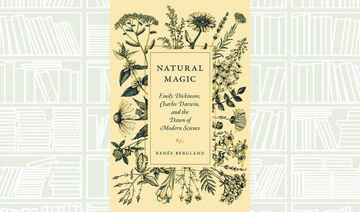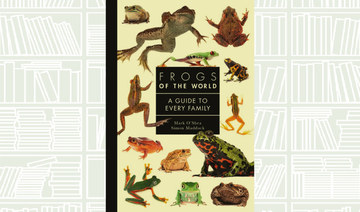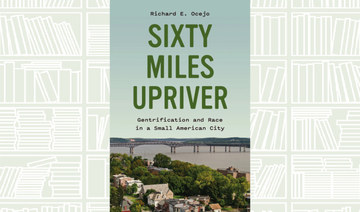LOS ANGELES: “To Kill a Mockingbird,” a coming-of-age story about racism and injustice, overpowered wizards and time travelers to be voted America’s best-loved novel by readers nationwide.
The 1960 book by Harper Lee emerged as No. 1 in PBS’ “The Great American Read” survey, whose results were announced Tuesday on the show’s finale. More than 4 million votes were cast in the six-month-long contest that put 100 titles to the test. Books that were published as a series counted as a single entry.
The other top-five finishers in order of votes were Diana Gabaldon’s “Outlander” series about a time-spanning love; J.K. Rowling’s “Harry Potter” boy wizard tales; Jane Austen’s romance “Pride and Prejudice”; and J.R.R. Tolkien’s “The Lord of the Rings” fantasy saga.
Turns out the contest was a “Mockingbird” runaway.
“The novel started out at No. 1 on the first day of the vote, and it never wavered,” series host Meredith Vieira said.
Joining her to sing the book’s praises was writer Aaron Sorkin, whose adaptation of “Mockingbird” starts Broadway previews next month, and cast members. Sorkin (“The West Wing,” “The Social Network”) said reading Lee’s novel was his first brush with “astonishing writing.”
“There is soul-crushing injustice in this book that still exists,” he said. “And at the center, morality, decency and what it is to be a person strikes us.”
LaTanya Richardson Jackson, who portrays Calpurnia in the play, marveled at Lee’s achievement.
“I was most impressed that a woman wrote that way” during that era, the actress said, and that Lee was so “deeply involved on the right side of right.”
Lee’s slender, Pulitzer Prize-winning novel proved enduring enough to overcome the popularity of hefty epics adapted as blockbuster movie franchises (the Potter and Tolkien works) or for TV (“Outlander”). Even “Pride and Prejudice,” the 200-year-old inspiration for numerous TV and movie versions and with an army of “Janeites” devoted to Austen and her work, couldn’t best Lee’s novel.
Debbie Ford of Orion, Illinois, an “Outlander” fan whose love of the books was showcased on an episode of “The Great American Read,” expressed disappointment they didn’t win. But she delighted in the attention they — and the joy of reading — received.
“I believe this PBS series has reminded some of us again that reading is important, and it has exposed us to books that we may not ordinarily pick up. And that’s such a good thing!” Ford said in an email Tuesday, adding a friendly plug: “So please go read a book that you have not read before — especially if you haven’t yet discovered ‘Outlander’!”
“To Kill a Mockingbird” has sold more than 40 million copies worldwide and remains a fixture on school reading lists. The 1962 screen adaptation won three Oscars, including a best-actor trophy for Gregory Peck’s portrayal of heroic Atticus Finch.
Set in the 1930s South, the book centers on attorney Finch and his young children, daughter Scout and son Jem. When Finch defends an African-American man falsely accused of assaulting a white woman, the trial and its repercussions open Scout’s eyes to the world around her, good and bad.
Lee’s second published novel, “Go Set a Watchman,” was written in the 1950s before “Mockingbird” but is essentially a sequel. After being put aside by the author, it was rediscovered and released in 2015. Lee died the next year at age 89.
Besides the TV series, “The Great American Read” initiative included a 50,000-member online book club and video content across PBS platforms, Facebook and YouTube that drew more than 5 million views.
The 100-book list voted on by readers was based on an initial survey of about 7,000 Americans, with an advisory panel of experts organizing the list. Books had to have been published in English but not written in the language, and one book or series per author was allowed. Bookworms could vote once daily for their favorite work.
‘To Kill a Mockingbird’ chosen as America’s best-loved novel in vote
‘To Kill a Mockingbird’ chosen as America’s best-loved novel in vote

- Set in the 1930s South, the book centers on attorney Finch and his young children, daughter Scout and son Jem
- ‘To Kill a Mockingbird’ has sold more than 40 million copies worldwide
What We Are Reading Today: The Mystery of the Invisible Hand
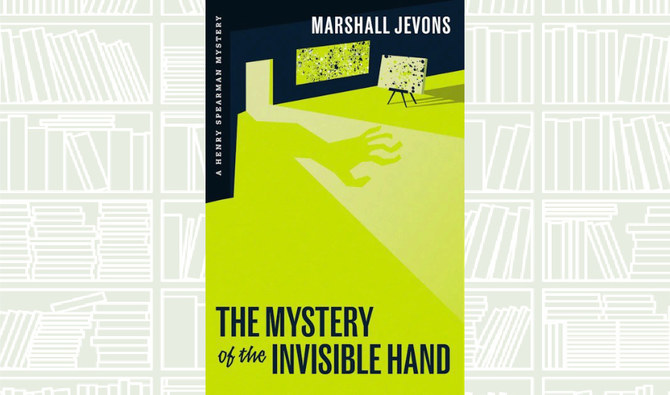
Author: Marshall Jevons
In “The Mystery of the Invisible Hand,” Henry Spearman, an economics professor with a knack for solving crimes, is pulled into a case that mixes campus intrigue, stolen art, and murder.
Arriving at San Antonio’s Monte Vista University to teach a course on art and economics, he is confronted with a puzzling art theft and the suspicious suicide of the school’s artist-in-residence.
From Texas to New York, Spearman traces the connections between economics and the art world, finding his clues in monopolies, auction theory, and Adam Smith.
What We Are Reading Today: ‘The Little Book of Beetles’
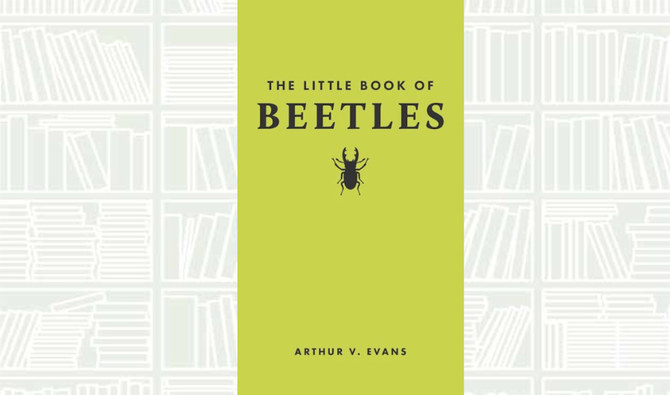
Author: ARTHUR V. EVANS
Packed with surprising facts, this delightful and gorgeously designed book will beguile any nature lover. Expertly written and beautifully illustrated throughout with color photographs and original color artwork, “The Little Book of Beetles” is an accessible and enjoyable mini-reference about the world’s beetles, with examples drawn from across the globe.
It fits an astonishing amount of information in a small package, covering a wide range of topics — from anatomy, diversity, and reproduction to habitat and conservation.
What We Are Reading Today: Spiderweb Capitalism: How Global Elites Exploit Frontier Markets
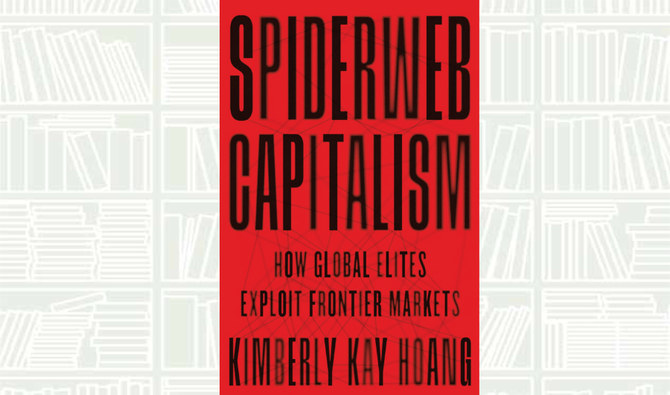
- Hoang reveals the strategies behind spiderweb capitalism and examines the moral dilemmas of making money in legal, financial, and political gray zones
Author: Kimberly Kay Hoang
In 2015, the anonymous leak of the Panama Papers brought to light millions of financial and legal documents exposing how the superrich hide their money using complex webs of offshore vehicles. Spiderweb Capitalism takes you inside this shadow economy, uncovering the mechanics behind the invisible, mundane networks of lawyers, accountants, company secretaries, and fixers who facilitate the illicit movement of wealth across borders and around the globe.
Kimberly Kay Hoang traveled more than 350,000 miles and conducted hundreds of in-depth interviews with private wealth managers, fund managers, entrepreneurs, C-suite executives, bankers, auditors, and other financial professionals. She traces the flow of capital from offshore funds in places like the Cayman Islands, Samoa, and Panama to special-purpose vehicles and holding companies in Singapore and Hong Kong, and how it finds its way into risky markets onshore in Vietnam and Myanmar.
Hoang reveals the strategies behind spiderweb capitalism and examines the moral dilemmas of making money in legal, financial, and political gray zones.
Dazzlingly written, Spiderweb Capitalism sheds critical light on how global elites capitalize on risky frontier markets, and deepens our understanding of the paradoxical ways in which global economic growth is sustained through states where the line separating the legal from the corrupt is not always clear.
What We’re Reading Today: Work Life Well-lived
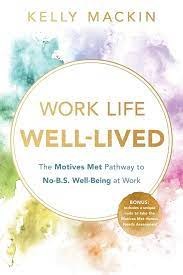
Author: Kelly Mackin
This book will disrupt how you think about creating your best work life and workplace and give you a road map to get you there, says a review published on goodreads.com.
Through years of research and truth-finding, Kelly Mackin and her company, Motives Met, have discovered a completely new mindset and approach around what well-being at work is all about, how to get there, and why it’s so important that we do get there.
This book is a personal guide and a call to action for a shift in our approach to work.
What We Are Reading Today: Natural Magic
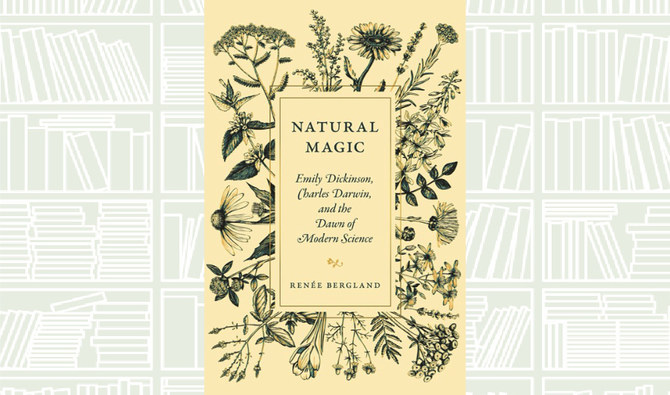
Author: Renee Bergland
Emily Dickinson and Charles Darwin were born at a time when the science of studying the natural world was known as natural philosophy, a pastime for poets, priests, and schoolgirls.
The world began to change in the 1830s, while Darwin was exploring the Pacific aboard the Beagle and Dickinson was a student in Amherst, Massachusetts.
“Natural Magic” intertwines the stories of these two luminary 19th-century minds whose thought and writings captured the awesome possibilities of the new sciences and at the same time strove to preserve the magic of nature.




